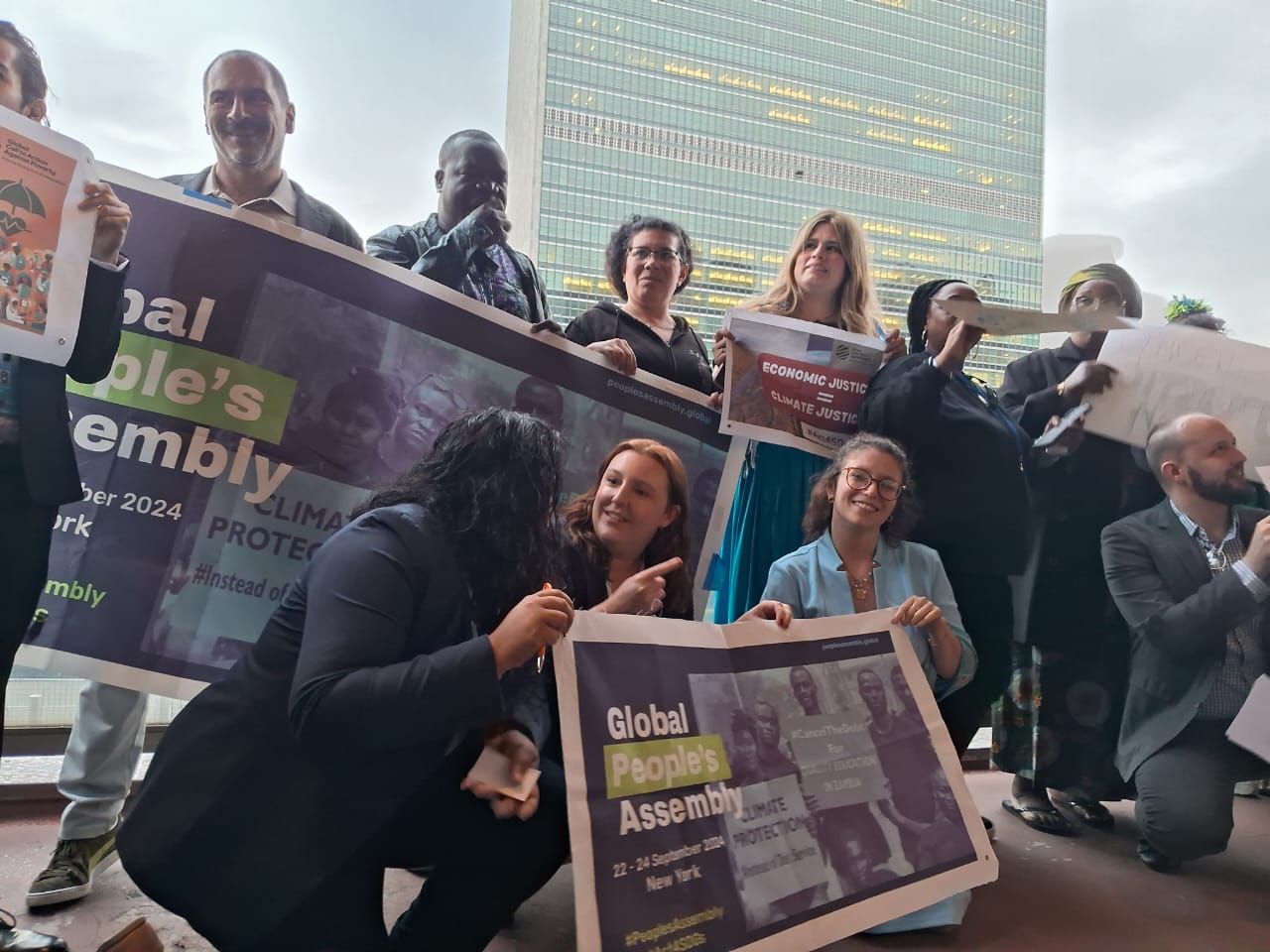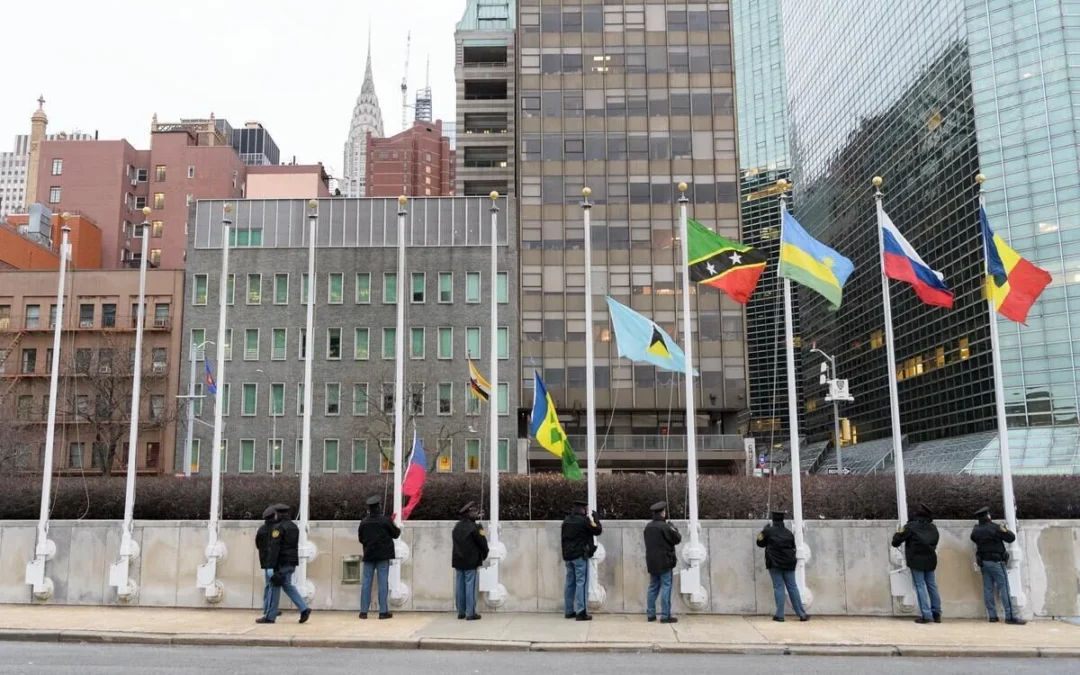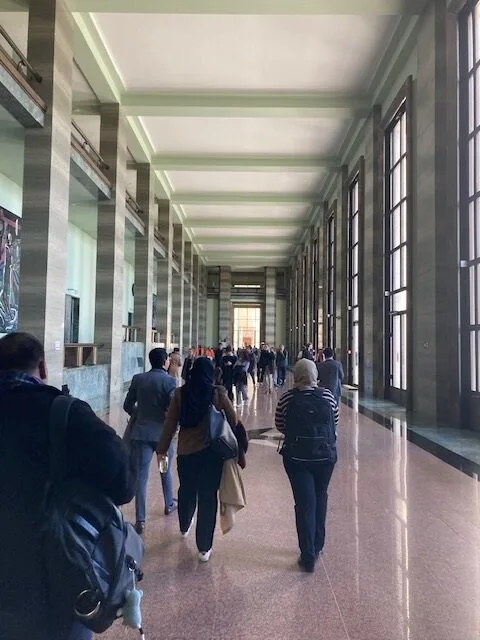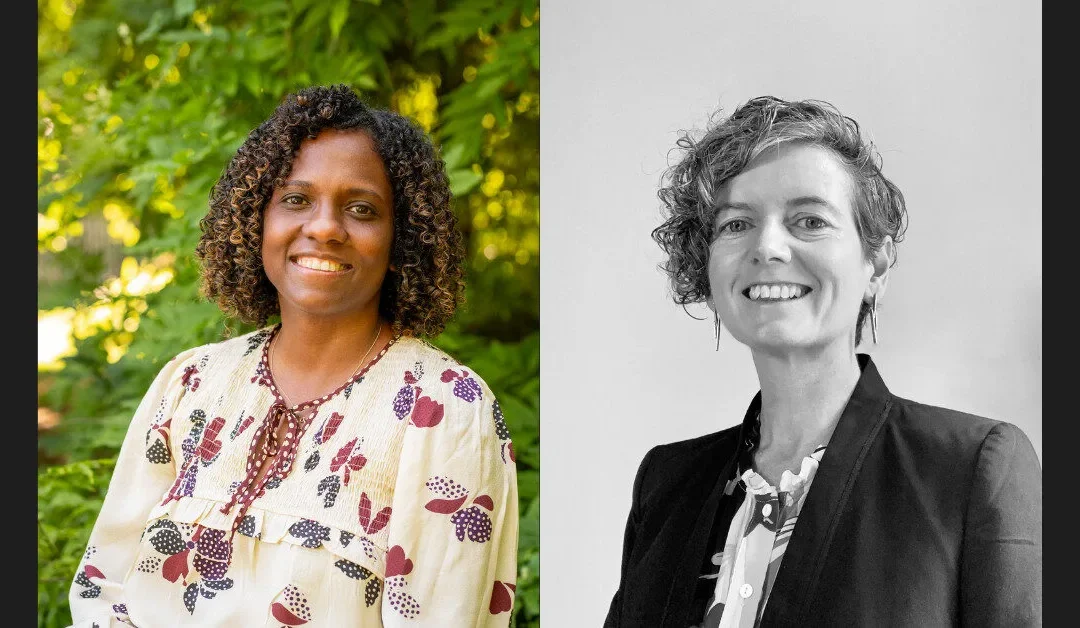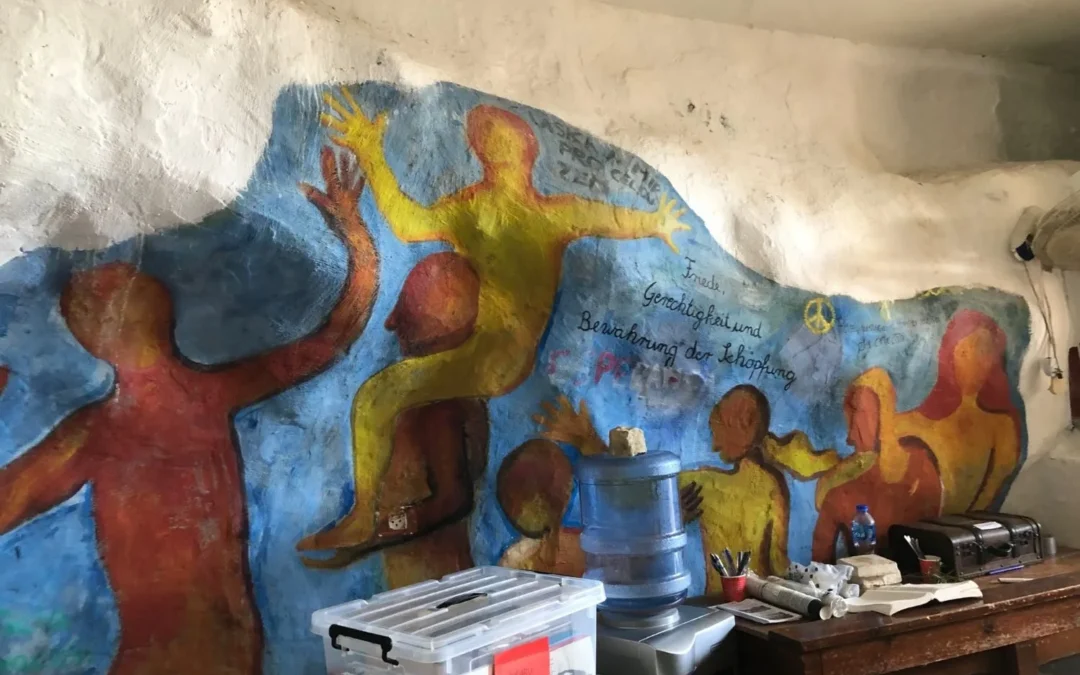While world leaders convened at the United Nations for the opening of the General Assembly, across the street at the UN Church Center civil society also gathered at the Global People’s Assembly to share experiences, strategize and mobilize in the face of growing global crises.
QUNO New York Representative Kavita Desai joined the Peace and Conflict session during the Global People’s Assembly. The discussion was framed with remarks by Karol Arámbula of My World México, who shared reflections on the Summit of the Future and the negotiation process. Karol framed the discussion with the context of a global backdrop of rising conflict, militarism and declining cooperation and a loss of progress towards the Sustainable Development Goals. Kavita then shared an overview of noteworthy upcoming UN processes where civil society engagement will be crucial to comprehensive agreements and progress towards peace and development. These opportunities include the Peacebuilding Architecture Review, Fourth International Financing for Development Conference and World Summit on Social Development in 2025, local governance through the UN Habitat forum, and the Internet Governance Forum that will explore the digital contribution to peace, development, and sustainability.
Beyond the global framing, the panel heard from Elena Marmo about the Transparency, Accountability and Participation Network’s SDG 16+ campaign and how civil society can collaborate for greater impact. Youth Representative Bahía Gatti shared experiences from the Latin American region and the challenges young people face in accessing global forums, from financing to language barriers, and the need to be more intentional in both opening spaces and providing opportunities for young people. Mojisola Akinsanya, a local civil society actor from Nigeria, also shared the challenges of shrinking civic space and difficulties in accessing support and resources under this lens. As participants shared their experiences it was clear that many organizations around the world are dealing with similar challenges of access to resources and increasing restrictions. In light of these limitations, the space to share experiences and solidarity with colleagues was valuable.
The Global People’s Assembly stressed the crucial opportunity to reassess and reinvigorate commitments towards Sustainable Development. In the face of daunting multidimensional crises, this applied in particular to SDG 16 and its pivotal role in fostering peaceful, just, and inclusive societies, as well as the power of people to achieve the transformative action we seek.

